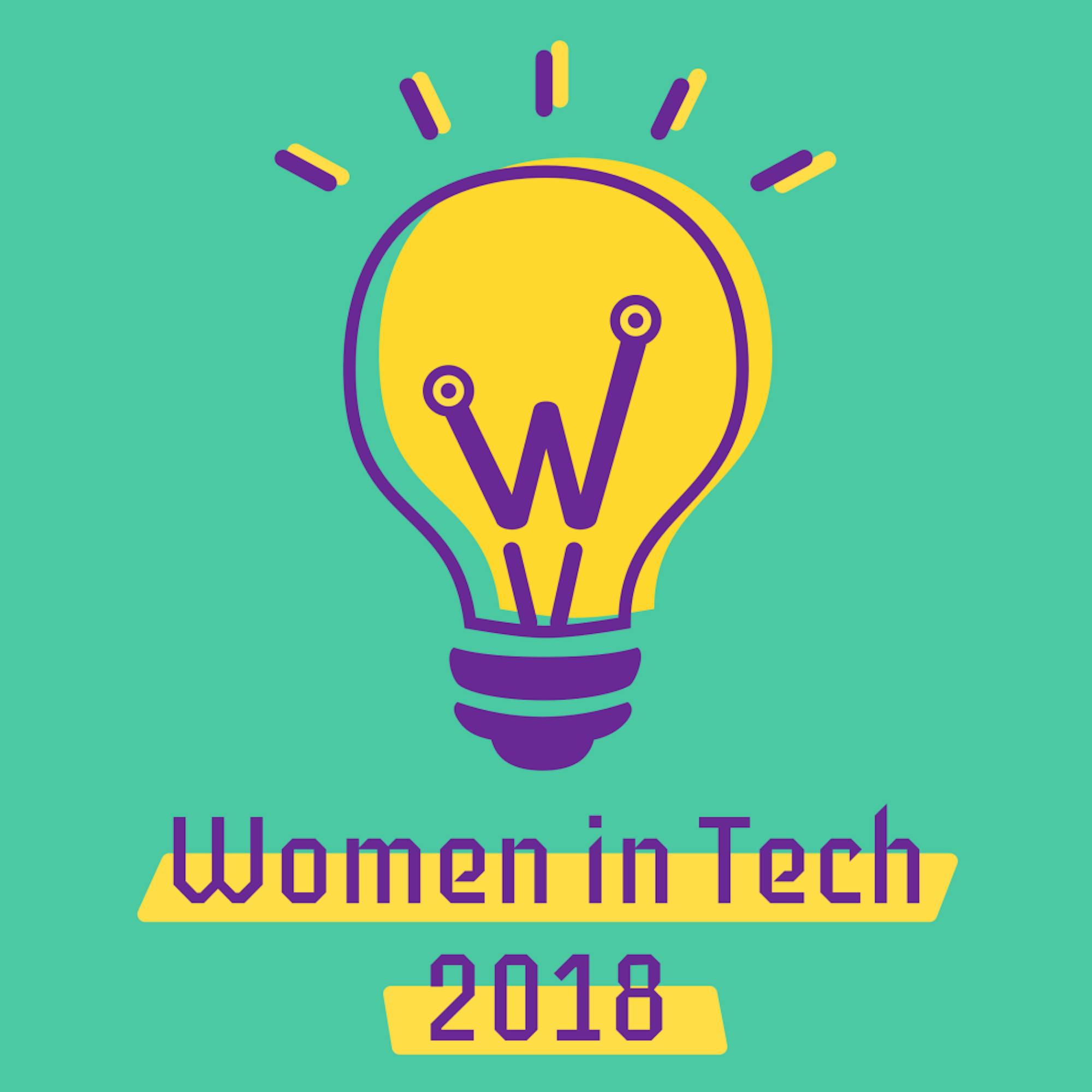The second annual Tufts Women in Technology(WiT)conference will take place Saturday in the Collaborative Learning and Innovation Complex at 574 Boston Ave. from 9:30 a.m. to 6 p.m. The event, which is hosted by Tufts Women in Computer Science (WiCS), will feature lectures and workshops led by guest speakers, a career fair, and opportunities for networking and community building.
The conference is intended to create a space for women to feel empowered and welcome in the technology industry, according to junior Lexi Walker, marketing coordinator for the event.
Seniors Supriya Sanjay and Iris Oliver, co-lead coordinators of WiT, see the conference as having three main goals: to promote intellectual exploration, career development and community. Sanjay expressed that the most important of these three is community.
“If everyone takes that away from this conference, or feels like they made one friend, or feels more comfortable walking into [Halligan Hall], we will be happy by the end of it,” she said.
WiT will begin with a career fair and opportunities for attendees to network with representatives from conference sponsors, according to the event’s website. The rest of the day will feature lectures and presentations by 23 speakers who hail from across academia and industry, according to Walker.
Daphne Larose, a game development engineer at software development company Niantic, is scheduled to give the event's keynote speech.The conference website describes Larose as "a feminist-identified, happily lesbian Haitian-American programmer." Larose was one of the engineers to work on Pokémon GO, Niantic's most famous project, according to Sanjay.
“The point of the keynote is to show people [that] there’s someone who looks like me who’s doing awesome things. It’s to inspire people, and that’s exactly what she’s going to do. I have full confidence,” Sanjay said.
This year's WiT conference is entirely funded by corporate sponsors, including primary sponsor Niantic. The team received no financial support from the university or affiliated organizations, according to Sanjay. The organizers did, however, receive advising and other forms of support from the Department of Computer Science, according to Oliver.
Sanjay and Oliver began planning for this year's conference in January; the rest of the executive board and their teams joined in March, Sanjay said.
The planning committee, composed of Sanjay, Oliver and five other teams of students, handles marketing, high school outreach, finance and logistics, while also coordinating speakers and sponsors, according to Sanjay.
WiT 2018 is built on the precedent of last year’s inaugural conference, which was organized in response to an exponential increase in the membership of WiCS, according to Oliver. This year’s conference will feature more career-building opportunities for attendees, according to Sanjay and Oliver.
This year's organizers also put more consideration into intersectionality when choosing speakers, Oliver said.
Sanjay and Oliver expect attendance at this year’s conference to be double what it was last year. As of Sept. 18, the event had approximately 400 people registered, according to Walker. This includes local high school students and college students from schools in both the Boston area and out of state, according to Walker.
This year, the organizers formed a new team devoted to reaching out to high school students in an effort to reach audiences of different experience levels and inspire younger students, according to Walker. Oliver added that for the first time, the conference will connect high school students with college-age mentors who can offer guidance throughout the conference.
“We’re hoping that these will be friendships that can last past conference day, and that these high school students can have someone to ask questions to about studying computer science and entering the tech world,” Oliver said.
Walker expects the attendance of the event to comprise mostly of female and femme non-binary students studying technology-related subjects — the same group of students that WiCS serves. Nevertheless, Walker encourages those of other gender identities and with other interests to attend as well.
“There’s no need to have technical experience going in. Even if you’re just considering joining tech, you can gain something [from the conference],” Walker said. “It’s hard to have an event called 'Women in Tech' because I think it implies that others are not as welcomed, but we’re hoping to brand it in a way so people understand that though it empowers women in tech, it’s not exclusively for women in tech.”
Sanjay hopes that WiT attendees will leave feeling more comfortable in the industry and validated as individuals.
“If there’s one thing [that I want people to take away], it’s the community aspect — that you come and feel more supported as a woman or non-binary person or even an ally in tech,” she said. “A lot of people talk about imposter syndrome in tech, and there’s no way to really get over it ... But in little ways you can fight back and be like ‘I see people who look like me and are killing the game.’ That’s really good affirmation and validation.”
WiCS to host second annual Women in Tech conference

The logo of the 2018 Women in Technology conference, organized by Tufts' Women in Computer Science, is pictured.





